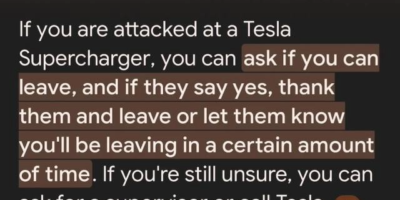Waterloo has been a centre for ideas and entrepreneurship for many decades. The presence of an open collaborative culture and the emphasis on ownership of intellectual property has helped the University of Waterloo gain huge success in the creation of start-up companies. One such company to come out of uWaterloo’s Velocity Garage is MetricWire, who have created a mobile application through which researchers can crowdsource data through custom-built surveys for various purposes. I recently interviewed Charles Desouza, one of MetricWire’s co-founders, to hear the story behind the start-up and his perspective on the culture of entrepreneurship in Waterloo.
Charles Desouza shows up punctually at 6:30 pm at the Great Hall in the Student Life Centre where we agreed to meet, and greets me with an enthusiastic smile. Considering the various activities he has to balance, it seems like time management would be a necessity – in addition to being involved full-time in MetricWire, he is also an active member of uWaterloo’s Dragonboat Club, as his build confirms.
Charles was a 3rd year undergraduate student in Systems Design Engineering in 2013 when he was introduced through a mutual friend to Brian Stewart, then a graduate student under economics professor Larry Smith. Brian was on the lookout for people with expertise in building mobile applications, and Charles’ interest was piqued when he heard the concept behind Brian’s product idea.
Brian is an expert in econometrics, which applies statistical methods to economic data in order to test hypotheses. For one of his projects, he felt the need to create a flexible tool that could be used to collect longitudinal data from a sample population in order to make predictions based on the observed trends. The idea of MetricWire was formed as a result – an online application for smartphones used to ask questions to participants tailored to their specific interests, and triggered at certain times of the day or at certain locations they visited.
Charles was on co-op at MappedIn when he first joined MetricWire, and as a result, had to balance the two duties – he worked at MappedIn during the day and MetricWire at night. Eventually, he decided to work full-time on MetricWire, as Brian had his own responsibilities that included providing for his family.
MetricWire is primarily targeted towards researchers who don’t have the technical expertise to build their own online surveys. “The MetricWire application is designed mostly as a do-it-yourself tool”, states Charles. “The sample size for past studies we have helped with have been as high as 2000, and can be further scaled up”. In the past, MetricWire has helped researchers in the field of psychology, as well as those conducting clinical trials. In addition, consumer insight surveys for companies have also been created by them. An example of one of their surveys is one designed to determine stress levels – by asking specific questions at different times of the day, researchers were able to gauge how stressed participants were, and the reasons for the same.
Researchers from Waterloo and Vancouver, as well as those from other countries such as Australia and the Netherlands have found the application invaluable. “Around the time we first started, we realized that a lot of people wanted the product we were pitching but we had not completed building the tool yet”, says Charles. The team required funding and investments in order to kick-start the app-development process, and decided to apply to the Velocity Fund Finals as a result.
MetricWire was successful in winning $25 000 at the VFF event in November 2013, and used the money to hire three co-op students in order to quickly expand their product and implement additional features. In June the following year, they applied to and joined the Y Combinator program at San Francisco. While there, they were able to obtain mentorship and funding from Silicon Valley’s top tech leaders. “While our experience in San Francisco was great, we decided to base our company in Waterloo since there is such a great talent pool in the region, and there is much more competition in SF”, says Charles. “The start-up culture here is really thriving and growing at a fast pace. A few years ago it was just Kik and a few others, but more recently there have been success stories such as Thalmic Labs and Vidyard”.
MetricWire currently has twelve people on the team, and are always looking to hire more skilled people. With such a versatile and important research tool to offer, MetricWire seems guaranteed to grow and expand in order to cater to a large number of customers.




Leave a Reply